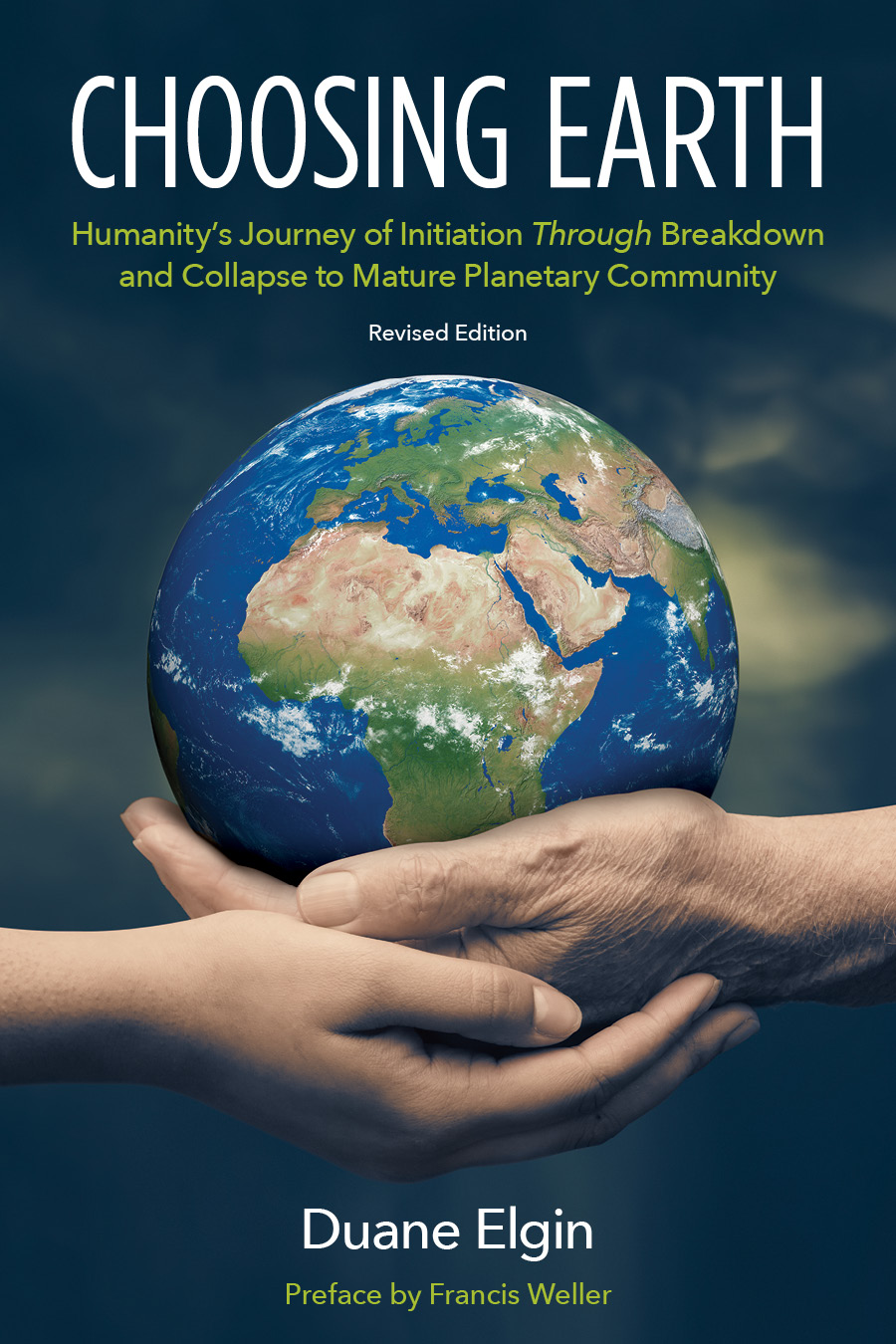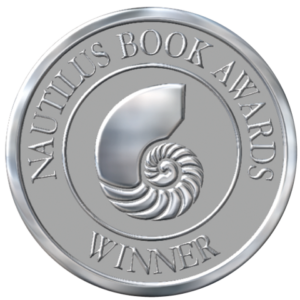Choosing Earth Now Available in 7 Additional Languages
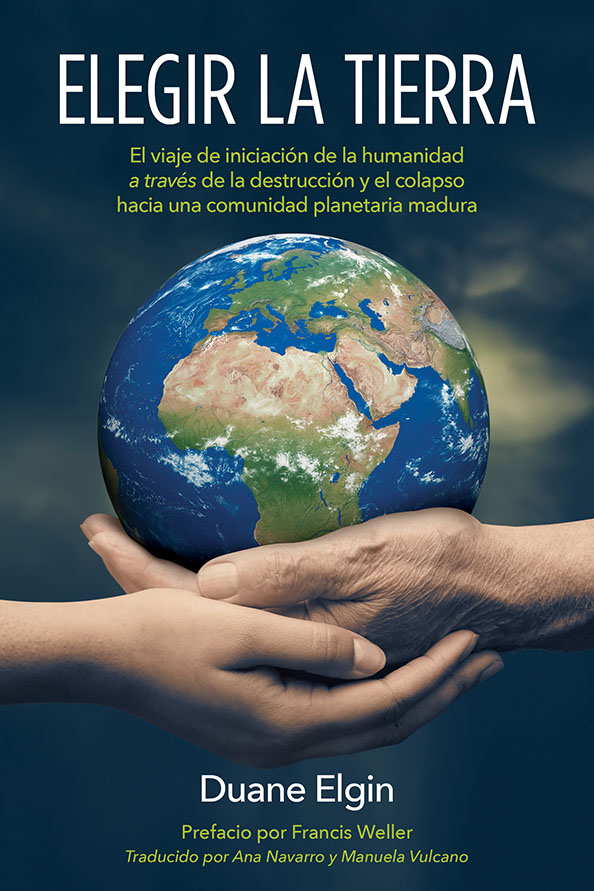
Spanish
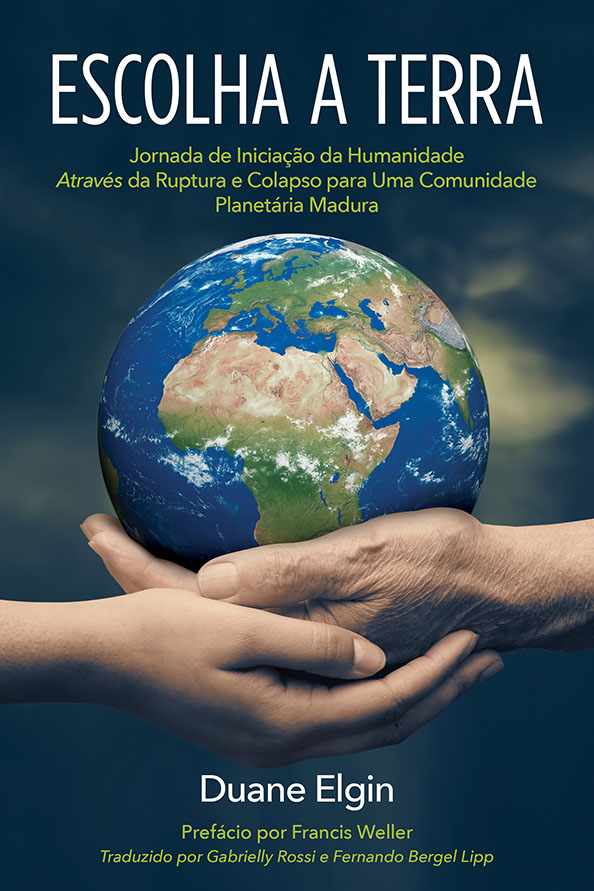
Portuguese
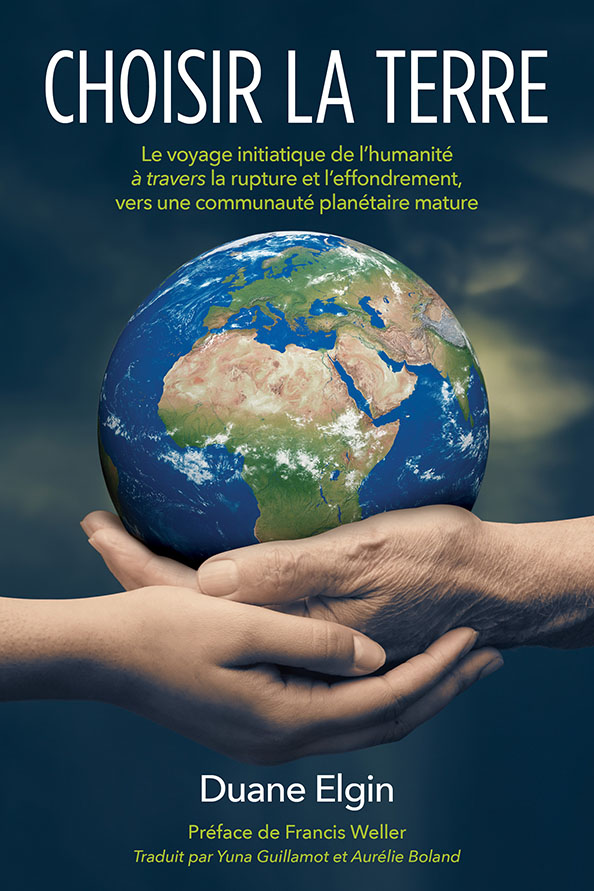
French
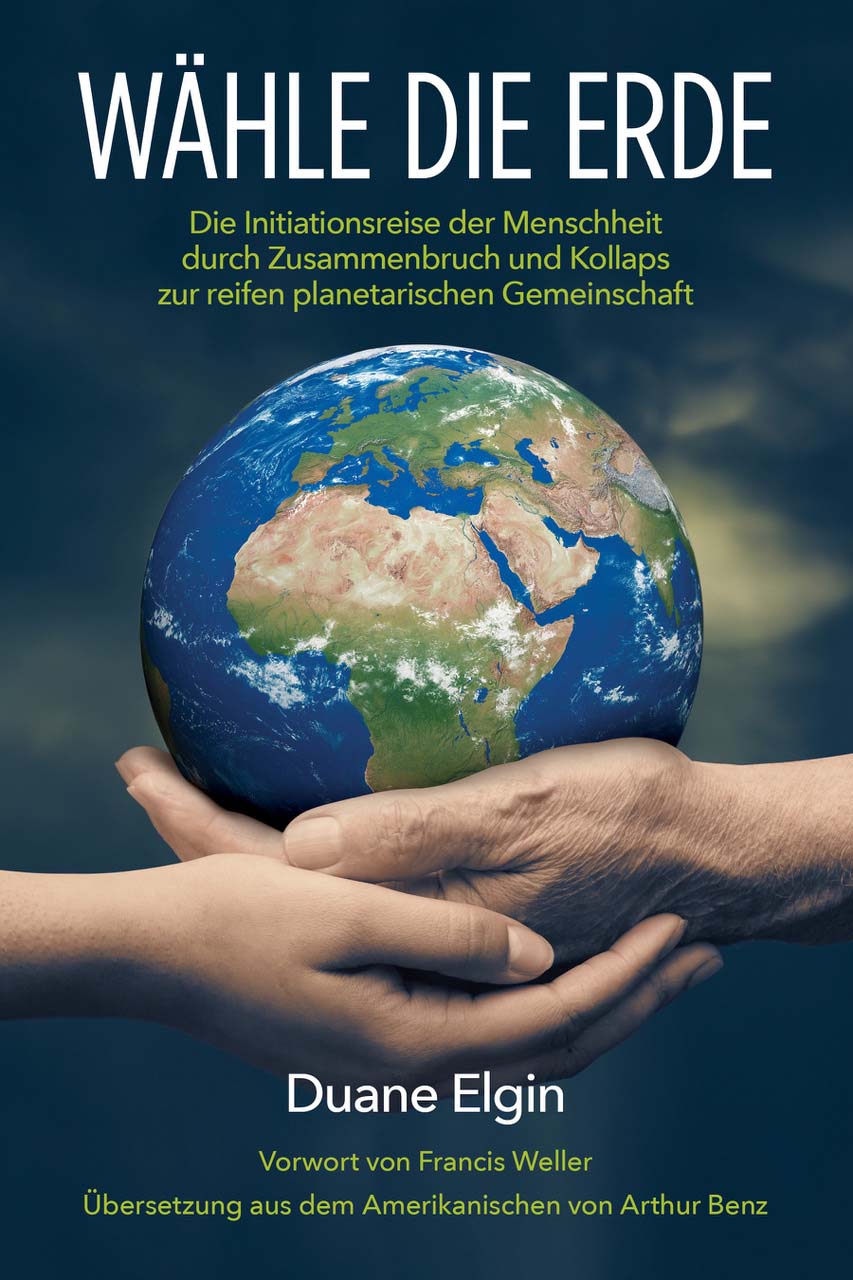
German
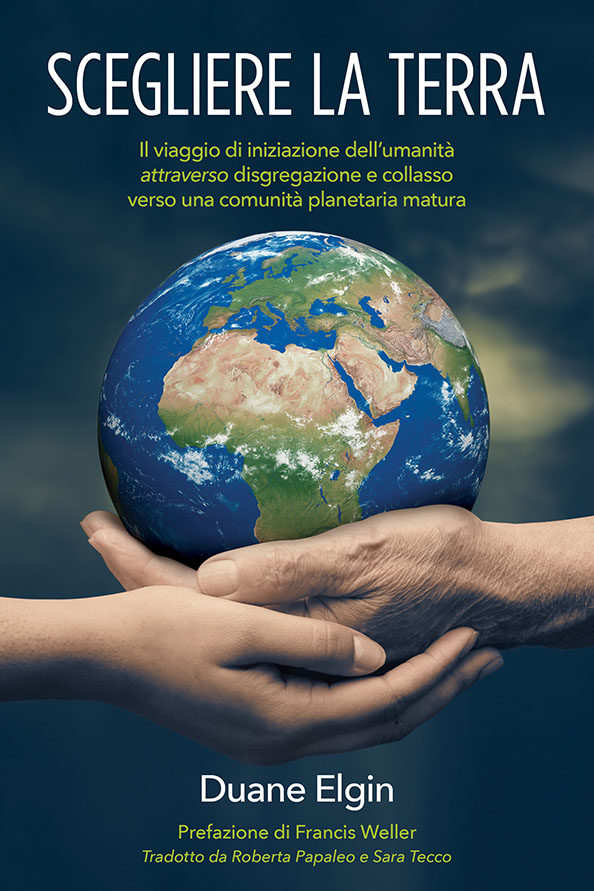
Italian
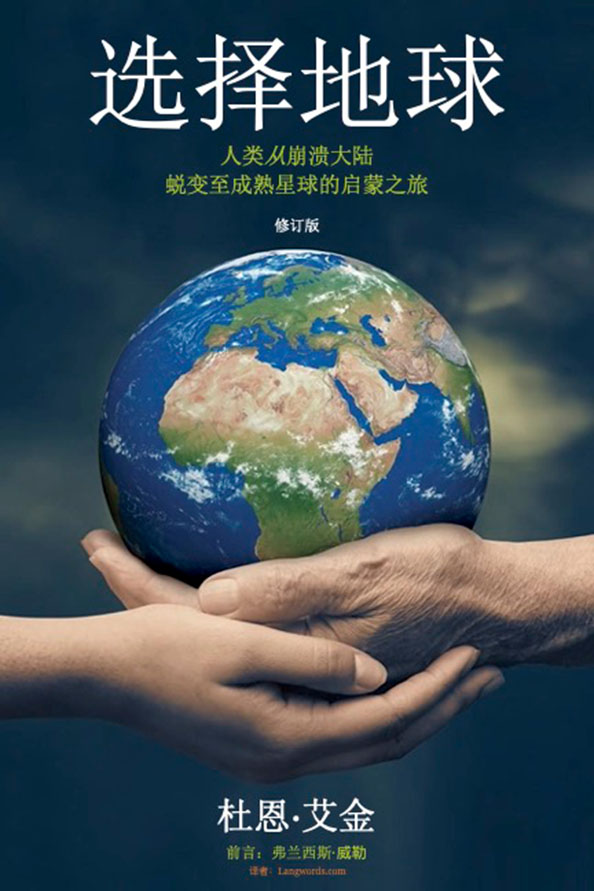
Chinese
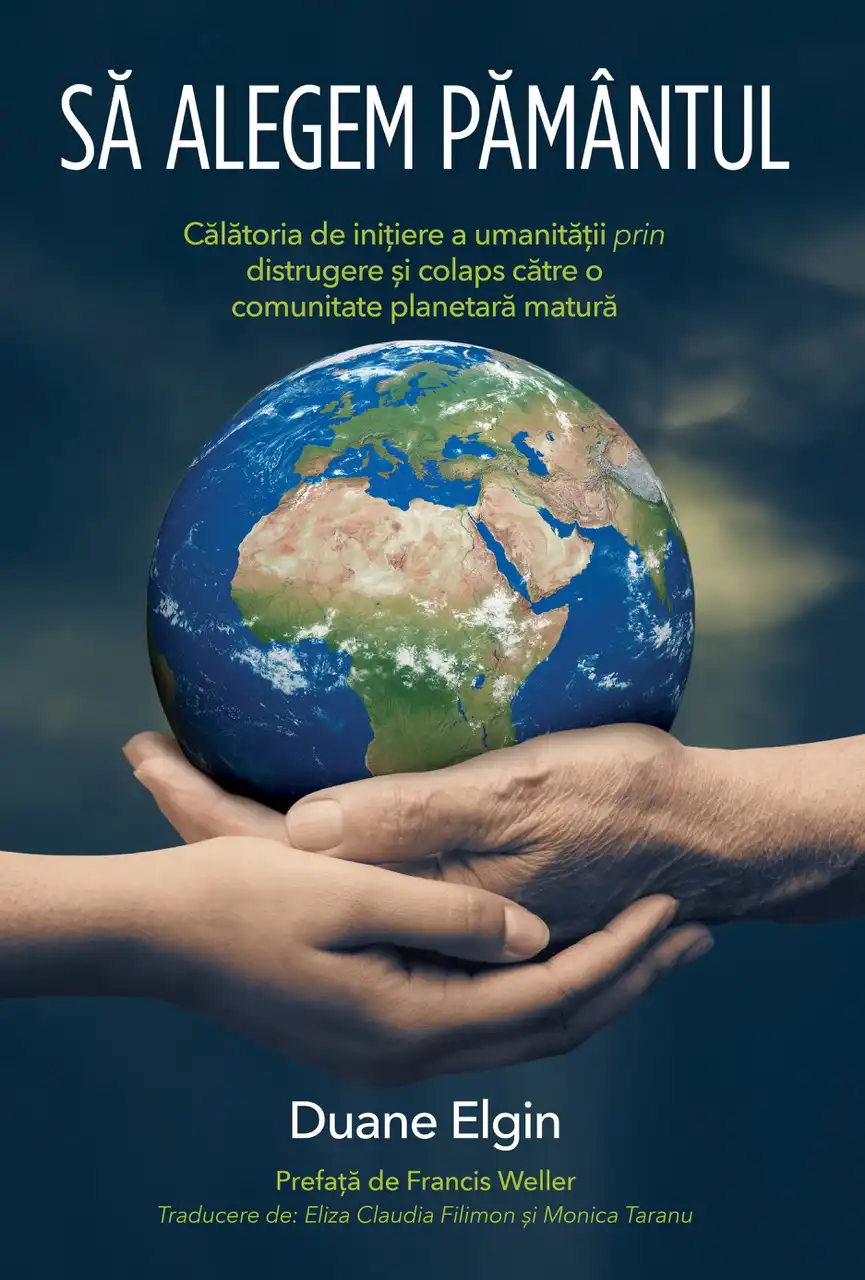
Romanian

Spanish

Italian

Portuguese

Chinese

French

Romanian

German

Spanish

Portuguese

French

German

Italian

Chinese

Romanian
The challenges facing humanity—from increasingly severe climate change and resource exhaustion to escalating social injustices and the rising threat of authoritarianism—call for a radical transformation in how we live on the planet. In this profoundly relevant and potent book, Choosing Earth, Duane Elgin brilliantly draws our vision into, and then beyond these tragedies of our own making, presenting collapse as an integral part of our rite of passage if humanity is to grow into conscious relationship with life. Inviting us into a “wide, deep, and long” view of our present moment and what lies ahead, Elgin urges the human community to open to the transformative work of facing grief and loss, and to work for reconciliation and healing of injustices. Choosing Earth envisions a fiery initiation that has the potential to transform humanity’s life-denying separations and awaken us to our deep interconnectedness—ultimately inspiring us to work together for the well-being of the entire Earth. With both visionary optimism and unflinching realism, Elgin draws on more than 50 years of research, writing and activism to develop this remarkable book that plants seeds of possibility and serves as a guide for our way through this time of great transformation.
“Your excellent book is very much in line with our concerns and priorities. “
“Duane Elgin taps into the most profound, evolutionary pulse of our time. Choosing Earth is timely, relevant, clear, potent and absolutely brilliant.”
“A truly essential book for our time — from one of the greatest and deepest thinkers of our time. Whoever is concerned to create a better future for the human family must read this book — and take to heart the wisdom it offers.”
“Duane Elgin has thought hard — and meditated long — about what it will take for humanity to evolve past our looming ecological bottleneck toward a future worth building. There is wisdom in these pages to light the way through our dark and troubled times.”
“At a time when billionaires are preparing to escape from the Earth through Space X, assuming that extinction is inevitable, Duane Elgin shows that we can Choose Earth. He shows that escape or extinction, collapse or surveillance systems, are not the only options. We as humans have a third choice — to respect ecological boundaries and limits and regenerate the Earth, and the well-being of all. We as humans have the potential to sow the seeds of a planetary civilization as members of the Earth Community.”
“In his magnum opus, Choosing Earth, Duane Elgin leads us on the ultimate journey of humanity’s collective free will as a species. Humanity, both present and future, and all life on Earth owes a debt of gratitude to Duane for awakening us to the urgency and regenerative possibilities of choosing Earth.”
“This may be the perfect moment for so prophetic a voice to be heard. Sobered by the pandemic, we are recognizing both the fragility of our political arrangements and the power of our mutual belonging. As Elgin knows, we already possess the essential ingredient — our capacity to choose.”
“Choosing Earth is a profoundly important book: the crowning achievement of a life of contribution by a man of enormous intelligence, extensive knowledge, penetrating insight, and far-reaching vision, who has dedicated his life to understanding the perils our civilization faces, and how we might survive them and even grow from them.”
“Choosing Earth is the most important book of our time. To read and dwell within it is an awakening experience that can activate both an ecological and spiritual revolution.”
“I have never before read a book on the global climate crisis by a ‘white American male’ that has so deeply touched and enriched me with its unprecedented combination of comprehensive scientific analysis, unswerving commitment to justice and reconciliation, reverence for indigenous and marginalized people, honoring of women and the feminine.”
